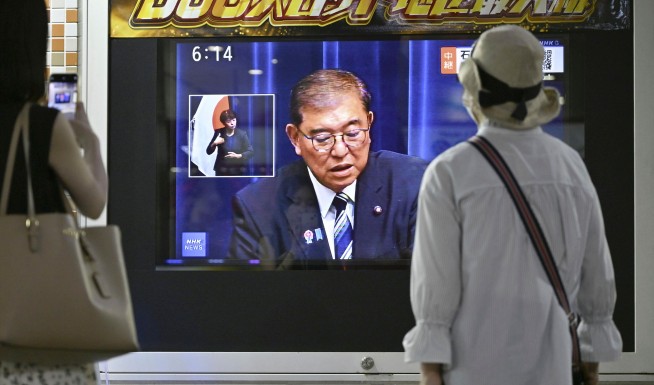
News
September 08, 2025
After Losses and Tariff 'Crisis,' Japan's Prime Minister Resigns
Japanese Prime Minister Shigeru Ishiba announced his resignation on Sunday after a series of election losses, pushing world's fourth-largest economy into political uncertainty just as it clinched a trade deal with the US. Ishiba, 68, said he must take responsibility after his ruling coalition lost its majorities in both houses...
**TOKYO** – Japan is facing a period of political upheaval as Prime Minister Shigeru Ishiba announced his resignation on Sunday, citing responsibility for recent electoral defeats that have shaken the foundations of his ruling coalition. The announcement comes at a critical time for the world's fourth-largest economy, just as it finalizes a significant trade agreement with the United States.
Ishiba, 68, addressed the nation in a televised statement, explaining that the losses suffered by his coalition in recent elections left him with no option but to step down. The coalition has lost its majorities in both houses of the Japanese parliament, a clear indication of waning public confidence in his leadership and policies. While Ishiba did not explicitly detail the reasons for the electoral setbacks, analysts point to a combination of factors, including public dissatisfaction with the handling of economic issues and growing concerns about the impact of international trade disputes.
The Prime Minister’s departure throws Japan into a period of uncertainty. The ruling coalition will now have to scramble to choose a successor, a process that could be drawn out and potentially divisive. Several names are already being floated as potential candidates, setting the stage for a fierce leadership battle within the party.
The timing of Ishiba's resignation is particularly sensitive given the recently secured trade deal with the United States. The agreement, years in the making, is expected to have a significant impact on various sectors of the Japanese economy, from agriculture to manufacturing. However, with a leadership vacuum at the helm, there are concerns that the implementation of the deal could be delayed or even altered.
The political instability also raises questions about Japan's role on the international stage. As a major economic power and a key ally of the United States, Japan's stability is crucial for regional and global security. The coming weeks will be critical as the ruling coalition navigates the leadership transition and attempts to restore public confidence. The world will be watching closely to see who emerges as the next leader of Japan and how they will steer the country through these challenging times.
Ishiba, 68, addressed the nation in a televised statement, explaining that the losses suffered by his coalition in recent elections left him with no option but to step down. The coalition has lost its majorities in both houses of the Japanese parliament, a clear indication of waning public confidence in his leadership and policies. While Ishiba did not explicitly detail the reasons for the electoral setbacks, analysts point to a combination of factors, including public dissatisfaction with the handling of economic issues and growing concerns about the impact of international trade disputes.
The Prime Minister’s departure throws Japan into a period of uncertainty. The ruling coalition will now have to scramble to choose a successor, a process that could be drawn out and potentially divisive. Several names are already being floated as potential candidates, setting the stage for a fierce leadership battle within the party.
The timing of Ishiba's resignation is particularly sensitive given the recently secured trade deal with the United States. The agreement, years in the making, is expected to have a significant impact on various sectors of the Japanese economy, from agriculture to manufacturing. However, with a leadership vacuum at the helm, there are concerns that the implementation of the deal could be delayed or even altered.
The political instability also raises questions about Japan's role on the international stage. As a major economic power and a key ally of the United States, Japan's stability is crucial for regional and global security. The coming weeks will be critical as the ruling coalition navigates the leadership transition and attempts to restore public confidence. The world will be watching closely to see who emerges as the next leader of Japan and how they will steer the country through these challenging times.
Category:
Technology